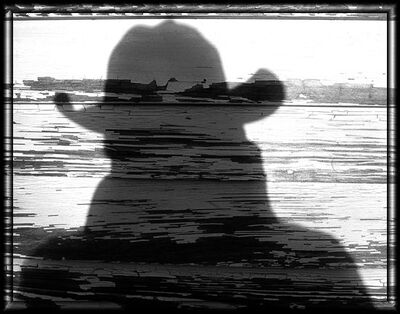Are nanocrystal coatings unicorn poop?
Dec 22, 2018 19:48:38 #
A number of manufactuers are advertising "nanocrystal coated" lenses and filters.
Apparently we are meant to assume this is a good thing, and a unique advantage
of their products.
A quick Google search turned up not much science: one relevant article from 2011
which appears from the abstract to be purely theoretical:
https://www.researchgate.net/publication/231004669_Optical_antireflection_of_a_medium_by_nanocrystal_layers
It seems likely that many vacuum-deposited coatings (whether by electrical
heating or electron beam heating) in use for decades may in fact create some
"nanocrystals". But until recently, this buzzword did not exist.
Chemists referred to microscopic crystals as "microscopic crystals" (or "a wee
cadger's curse of a crystal" if the chemist happened to be Scottish).
It reminds me of Monsieur Jourdain character in Moliere's Bourgeoise Gentlemen
who discovered that "I have been speaking prose all my life, and never even knew it!"
Is there something to nanocrystal coatings, or is it just more mythical horse droppings?
Is it really new, or are they "leein' like a horse cowper"?
Apparently we are meant to assume this is a good thing, and a unique advantage
of their products.
A quick Google search turned up not much science: one relevant article from 2011
which appears from the abstract to be purely theoretical:
https://www.researchgate.net/publication/231004669_Optical_antireflection_of_a_medium_by_nanocrystal_layers
It seems likely that many vacuum-deposited coatings (whether by electrical
heating or electron beam heating) in use for decades may in fact create some
"nanocrystals". But until recently, this buzzword did not exist.
Chemists referred to microscopic crystals as "microscopic crystals" (or "a wee
cadger's curse of a crystal" if the chemist happened to be Scottish).
It reminds me of Monsieur Jourdain character in Moliere's Bourgeoise Gentlemen
who discovered that "I have been speaking prose all my life, and never even knew it!"
Is there something to nanocrystal coatings, or is it just more mythical horse droppings?
Is it really new, or are they "leein' like a horse cowper"?
Dec 22, 2018 20:00:01 #
That's some heavy mathematics in the article you supplied. I did some heavy math in my engineering curriculum but I don't understand what they're doing in the article. It's giving me a headache. My Nikon 80-400mm f/4.5-5.6 AF-S lens has Nikon's nano crystal coating. I think lenses that have the nano crystal coating produce images with slightly higher contrast than lenses with the standard multi-coatings.
Dec 22, 2018 20:11:42 #
The term nanocrystal has been around at least since 1996.
Dec 22, 2018 20:43:00 #
Dec 22, 2018 20:49:22 #
Dec 22, 2018 20:54:53 #
Retired CPO wrote:
I thought everyone knew that unicorns poop cotton candy.
I thought they pooped rainbows???
Dec 22, 2018 21:18:16 #
wdross
Loc: Castle Rock, Colorado
Bipod wrote:
A number of manufactuers are advertising "nan... (show quote)
Not unicorn poop. Coatings are an art. In the past, some coats on cheap filters and lenses came off with too much wetting by the cleaning solution and relatively light cleaning motion (I have a red 1975 filter that proves it). As the years went on, the coatings got more consistent in thickness and hardness due to continuous process improvements. Now the coatings are very hard compared to the past (resistant to water, many chemicals, and scratching) due to their structure (e.g., nanocrystals).
Dec 22, 2018 23:50:53 #
Bipod wrote:
A number of manufactuers are advertising "nan... (show quote)
There is a good, relativly easy-to-read article on the subject of nano coatings vs multicoatings here: https://photo.stackexchange.com/questions/22151/what-does-a-nano-crystal-coat-do-on-this-lens
For those too lazy (or uninterested) to read the article, a brief synopsis:
1. Multicoating is an advancement on the concept of singlecoating, and is designed on the basis of waveform interference.
Works by "tuning" reflected light in such a way that the reflected particles waveforms cancel each other out.
2. Nanocoating is a much newer concept, intriguingly based on the structure and design of moth eyes (which barely reflect any light at all.)
Designed to avoid reflection in the first place, and guide light rays into the lens without allowing them to reflect at all.
Nanocoatings allow better transmision of light than multicoatings, which means that lens designers can use more elements in the lens design than they can with multicoatings. Also, the improvement in transmission should provide better microcontrast which helps with the perception of sharpness. B+W have filters with 'MRC Nano' coating which they claim are easier to clean.
Do nanocoatings really work - I have no idea.
Dec 23, 2018 00:34:41 #
repleo wrote:
There is a good, relativly easy-to-read article on... (show quote)
Surprised the OP didn't find this before starting the thread.

--
Dec 23, 2018 02:29:19 #
Bipod wrote:
A number of manufactuers are advertising "nan... (show quote)
It's pretty much the same as it was 50 or more years ago, not a lot has changed, mostly the naming/language, but the coatings (although refined by now did not changed all that much)! Fuji's EBC, electric Beam Coating is still used today, though it received a few add-ons and Pentax's SMC is not really all that different these days either!
Dec 23, 2018 02:43:12 #
Bipod wrote:
A number of manufactuers are advertising "nan... (show quote)
You're asking US??
Why don't you call and talk to the Engineers that are developing the crystals and have THEM give you the rundown. They're not marketing, they're optical engineers and are concerned with developing and giving their lenses an edge over other manufacturers wares.
You may need to brush up on your technical Japanese terms!!! LoL
SS
Dec 23, 2018 04:47:15 #
Longshadow wrote:
The term nanocrystal has been around at least since 1996.
Vacuum deposited coatings have been around since Alexander Smakula working for Zeiss in 1935,
according to Wikipedia and Zeiss AG.
Dec 23, 2018 04:55:27 #
repleo wrote:
There is a good, relativly easy-to-read article on... (show quote)
That article is anonymous.
It cites no sources and offers no evidence.
It is a rehash of the theory in the peer-reviewed paper that I linked.
Adverising claims are not evidence.
In th eold days, Eastman Kodak's filter guide would have given graphs for
spectral transmission and reflectivity--if it was real. Otherwise they would
not have sold it.
Today pursuasive adversiting is both cheaper and more effective than
actually doing science. And that's a big problem for photography.
Dec 23, 2018 05:03:24 #
wdross
Loc: Castle Rock, Colorado
Bipod wrote:
That article is anonymous.
It cites no sources and offers no evidence.
It is a rehash of the theory in the peer-reviewed paper that I linked.
Adverising claims are not evidence.
In th eold days, Eastman Kodak's filter guide would have given graphs for
spectral transmission and reflectivity.
Pursuasive adversiting is both cheaper and more effective than doing science.
And that's a big problem for photography.
It cites no sources and offers no evidence.
It is a rehash of the theory in the peer-reviewed paper that I linked.
Adverising claims are not evidence.
In th eold days, Eastman Kodak's filter guide would have given graphs for
spectral transmission and reflectivity.
Pursuasive adversiting is both cheaper and more effective than doing science.
And that's a big problem for photography.
The evidence is in the photographs and in the lenses and filters resistance to water, chemicals, and scratches. The science is there. All you have to do is read and look at the results and not doubt everything in print. From contrast and rain resilience alone I know that it works. One does not always need to be a doubting Thomas.
Dec 23, 2018 05:19:53 #
I did a quick search of the USPTO patent database for "nanocrystal" and "lens coating" from 1976 to present--all fields.
It turned up only 7 patents--only one of which was for optics:
7,935,212 Process for transferring onto a surface of an optical article a layer having a variable index of refraction
But this patent is for producing a variable refractive index, not an anti-reflective coating.
On the other hand, "unicorn" turned up 952 patents--which I didn't read.
And "lens coating" turned up 1021 patents, none of which mentioned "nanocrystal".(because I already searched for that).
It's beginning to look like our good friends at Nikon and B+W (and whoverver else has started making the claim since the last time we checked)
has definitely been vernturing into the fertilizer business
It would be alot simpler if they simply said their lenses and filters come in two coatings: original and extra-crispy.
Lens coatings are completely genuine---so are horses. But not horses with a horn--or coatings with nanocrystals.
Intereting idea---but not good enough to patent, apparently.
It turned up only 7 patents--only one of which was for optics:
7,935,212 Process for transferring onto a surface of an optical article a layer having a variable index of refraction
But this patent is for producing a variable refractive index, not an anti-reflective coating.
On the other hand, "unicorn" turned up 952 patents--which I didn't read.

And "lens coating" turned up 1021 patents, none of which mentioned "nanocrystal".(because I already searched for that).
It's beginning to look like our good friends at Nikon and B+W (and whoverver else has started making the claim since the last time we checked)
has definitely been vernturing into the fertilizer business
It would be alot simpler if they simply said their lenses and filters come in two coatings: original and extra-crispy.

Lens coatings are completely genuine---so are horses. But not horses with a horn--or coatings with nanocrystals.
Intereting idea---but not good enough to patent, apparently.
If you want to reply, then register here. Registration is free and your account is created instantly, so you can post right away.






